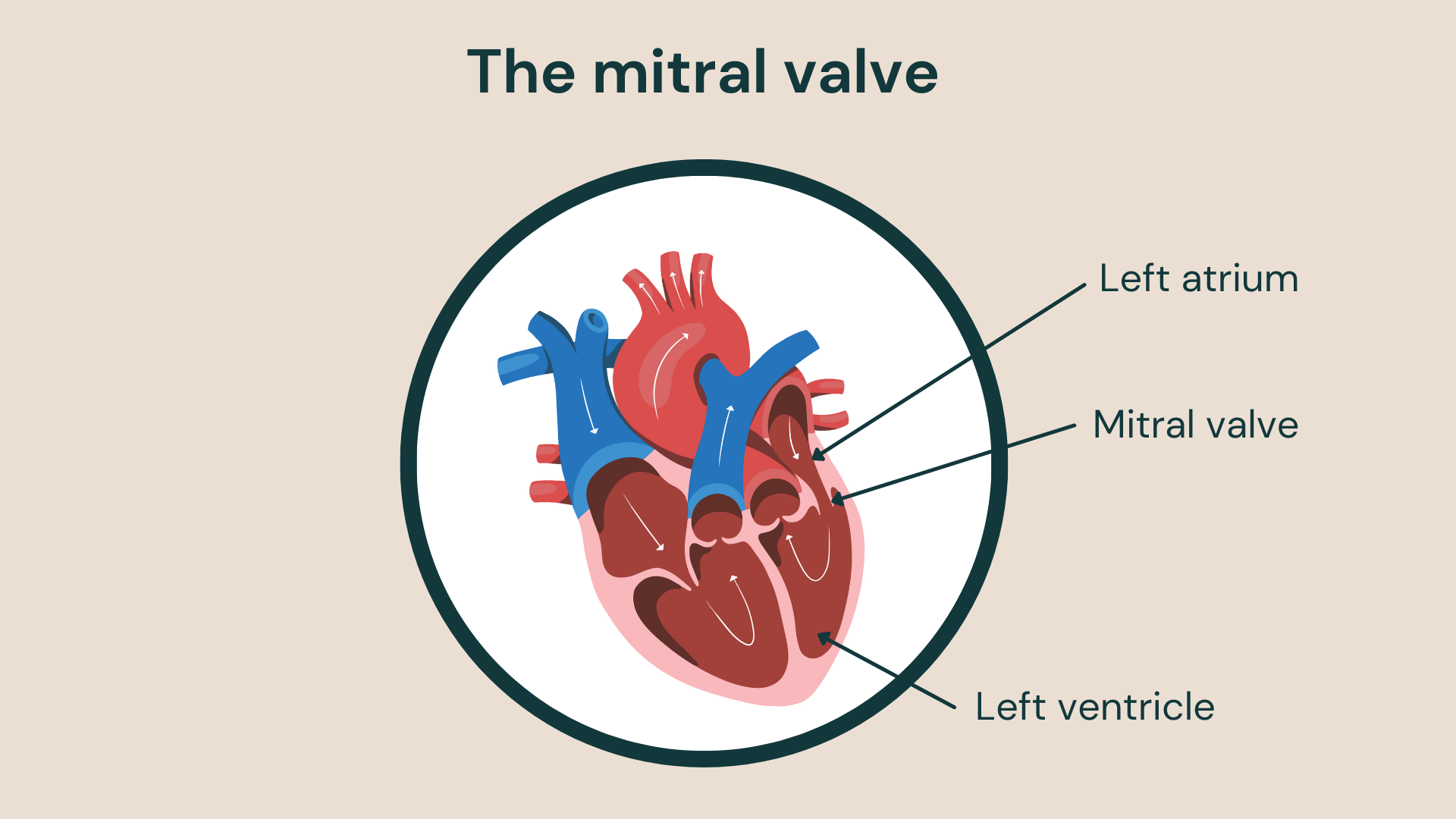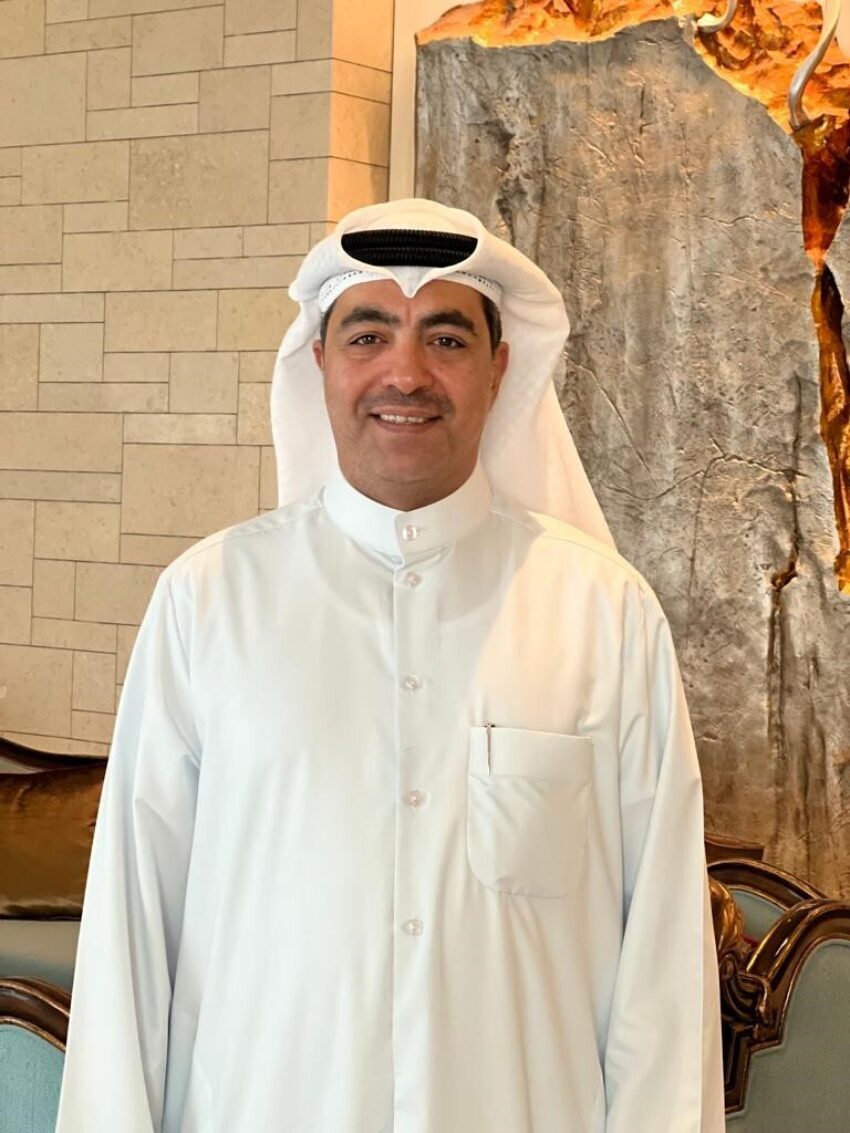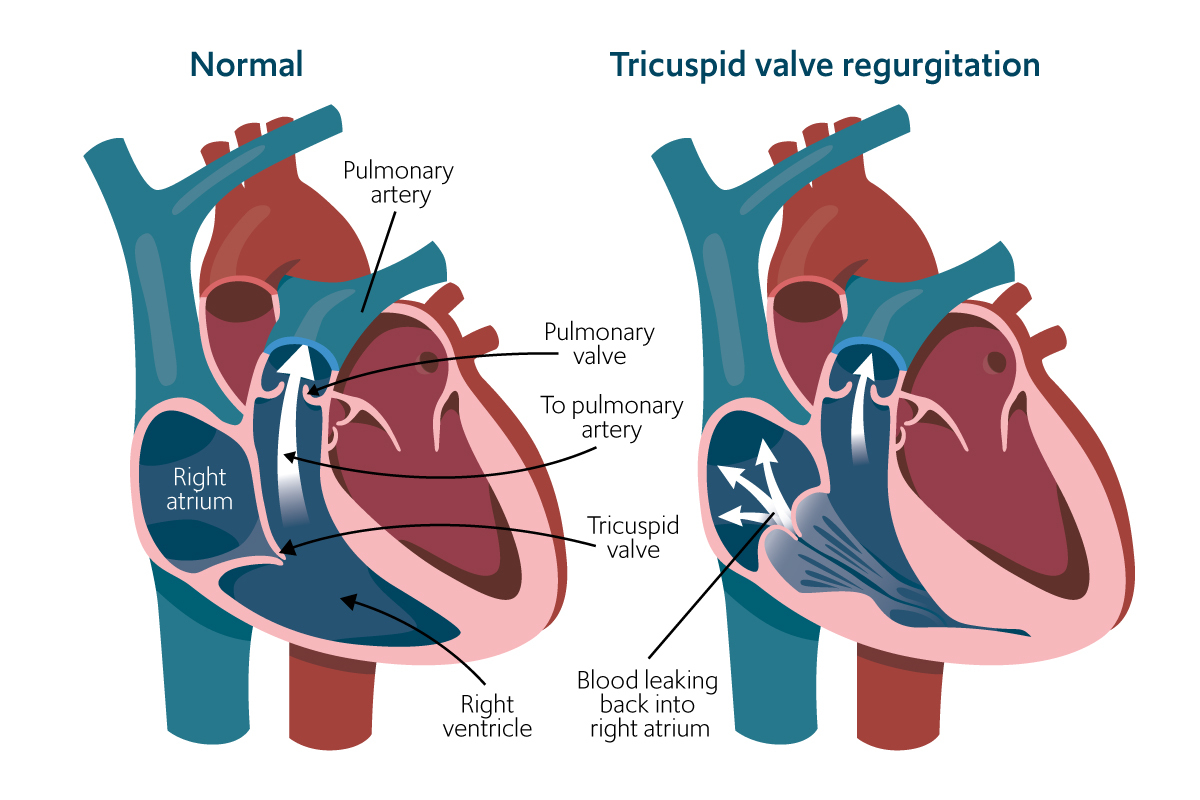Our consultant cardiac surgeons have developed a new totally endoscopic (keyhole) procedure to repair the heart’s mitral valve (a small flap in the heart which controls the direction of blood flow). The new treatment offers an alternative to invasive open-heart surgery, allowing for quicker patient recovery time and less scarring.
The effects of mitral valve disease
The mitral valve makes up one of the heart’s four main valves, which are responsible for preventing blood flowing the wrong way throughout the heart. If the mitral valve is faulty, blood can be restricted or leak backwards across the valve, causing problems with how blood flows throughout the body.
Mitral valve disease is common, with moderate to severe heart valve disease affecting 13% of people aged 75 and over. Symptoms of mitral valve disease can include shortness of breath, fatigue and arrythmias (irregular heartbeat), with progressive symptoms including heart failure.

Adapting our procedure for enhanced patient recovery
Sternotomy (open-heart surgery) was the well-established procedure for treating mitral valve disease. A sternotomy involves the surgeon making an incision over the sternum (breastbone) to access the heart and blood vessels for treatment, before reconnecting the sternum.
It takes around two months to recover after a sternotomy and patients are often under strict mobility restrictions to aid recovery. However, after making adaptations towards sternotomy with a smaller incision, and then to a minimally invasive procedure, our consultants have now evolved the treatment into a completely endoscopic procedure.
Performed exclusively at Royal Brompton and Harefield hospitals, the endoscopic procedure takes around four hours and is performed under general anaesthetic. To perform the procedure, a small incision is made between the ribs for placing the endoscope (a thin flexible tube with a camera at the end). Another incision is made in the groin to use the artery and vein for performing the bypass (to reroute blood flow).
Our total endoscopy procedure is suitable for performing mitral, tricuspid and aortic valve (three of the heart’s main valves) repair. The procedure uses specific endoscopic instruments, allowing the surgeon to view and access the heart and blood vessels – all without separating the breastbone and with minimal incisions.
State-of-the-art 3D technology
During the endoscopy, a high-definition 3D camera is used to direct the procedure inside the heart through a small incision in the chest. Wearing 3D glasses and guided by images projected onto a 3D screen, the surgeon can then repair or replace the damaged mitral valve.
This pioneering technology allows every surgeon in the operating room to view the projected images of the procedure, providing a new way for us to combine our multi-disciplinary expertise for the best outcome of care. Furthermore, the projected images can be accessed remotely via the internet, allowing our specialists to collaborate from anywhere in the world.
Mr Toufan Bahrami, consultant cardiac surgeon at Royal Brompton Hospital, explains: “This technology has revolutionised our view of the operating field. We can now access views from deep inside the chest, through high-quality 4K image, all without the use of open-heart surgery.”
Enhanced recovery for the patient
“As the endoscopic procedure allows for a much smaller incision, recovery for the patient is much quicker,” says Mr Bahrami. “With open-heart surgery, the patient cannot drive for eight weeks but with this endoscopy they can drive within three weeks. There are fewer postoperative restrictions,” he adds.
Patients are usually discharged within three days due to the procedure’s minimally invasive nature. Within four weeks our patients have reported to being active again and feeling positive, with minimal scarring and fewer complications, when compared to a standard procedure. “Without minimally invasive and totally endoscopic options, we would not be able to provide these gold-standard results,” adds Mr Bahrami.
One man’s international quest for life-saving care
47-year-old Mr Fayez Boti, a previous patient of Mr Bahrami, shares his experience of being treated at Royal Brompton hospital.
After being diagnosed with second-degree heart block (when the electrical signals of the heart don’t reach the chambers of the heart properly), Mr Fayez Boti was experiencing a multitude of symptoms.
These symptoms included a fever, choking sensations at night, difficulty swallowing and dizziness. “I never slept for more than an hour because of the night sweats and difficulty breathing,” adds Mr Boti.
He follows: “I always felt something was wrong. I always spent a long time in hospital. I suffered a lot. I had problems with my blood pressure and would often faint. I couldn’t concentrate – it took me hours to do something that should take five minutes, but I often related it to my blood pressure.”
Mr Boti was previously treated by Mr Bahrami.
Mr Boti refused open-heart surgery, but on hearing of Mr Bahrami’s new endoscopic surgery, he explains, “I was very happy to do it.” Travelling from his home country of Kuwait, Mr Boti was referred to Mr Bahrami at the Royal Brompton Hospital by the Kuwait Ministry of Health.

After diagnosing Mr Boti with torrential tricuspid regurgitation (a heart valve condition which causes blood to leak backwards across the heart), Mr Bahrami was keen to provide treatment as soon as possible, performing an endoscopic heart valve replacement in June 2022.
Following a successful treatment, Mr Boti proclaims: “My scars are very limited and I feel normal again. I went from minus 100% to 100%. I’m a survivor and I appreciate Mr Bahrami for making me alive again after years of suffering. I would definitely recommend the Royal Brompton Hospital.”

Tricuspid regurgitation: The heart works harder to push blood forward.
The gold-standard approach for heart valve repair
A minimally invasive approach should be the first port of call for all patients, as stated by medical governing body The Society of Cardiac Surgeons. If a patient’s existing surgeon doesn’t perform the treatment, the patient must be referred to someone who does.
“We are the only surgeons in the UK who perform this totally endoscopic treatment and have a dedicated heart team for mitral valve repair,” says Mr Bahrami. Every patient goes through our multi-disciplinary team, where we offer endoscopic and minimally invasive treatments for mitral, tricuspid and aortic valve repair.
The endoscopic heart valve repair procedure can be performed on most patients, regardless of sex, age, health state or chest shape. The only patients who may not qualify for a total endoscopy are patients who have had previous heart surgery, in which case we would offer them an alternative minimally invasive procedure.
“Since 2001 we’ve performed 3,000 minimally invasive procedures, 500 of which are minimal access mitral valve surgeries, and about 100 of those are totally endoscopic,” states Mr Bahrami.
Get in touch
For more information or to book an appointment, please contact our customer care team.
Related content
-
Cardiac surgery
Our consultants are at the forefront of cardiac surgery, pioneering a range of minimally invasive procedures.
-
Mitral regurgitation
Mitral regurgitation is the most common heart valve problem worldwide. It is a dysfunction of the heart’s mitral valve.
-
Heart valve repair or replacement
Heart valve surgery can repair or replace a damaged valve.
